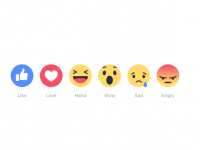The day, May 18, 2012, was nothing short of a milestone in the history of internet and technology. That was the day, when the social networking company Facebook Inc. went public with a peak market capitalization of over $104 billion. Facebook’s first, Q2 financial report as a public company is out, and it wouldn’t be wrong to say that the performance is at the borderline between poor and average.

Facebook Inc’s revenue for the Q2 climbed 32% to $1.18 billion, from $895 million, last year. Much of this revenue was generated through advertising. The company posted a net loss of $157 million, or 8 cents a share, compared with net income of $240 million, or 11 cents a share for the same quarter last year. The reason for the loss is because of stock-based compensation (payments to early investors), including chief executive Mark Zuckerberg.
Although after excluding the costs, the company posted a profit of 12 cents a share, or $295 million, which met the expectations of analysts who forecasted a revenue of $1.15 billion with an earning of 12 cents per share.
Facebook share prices which hadn’t increased from $38 since the first day of trading, months ago, slipped an all time low to $24.12 during after-hours trading on Thursday, that’s nearly 40% below the company’s initial public offering price. However it should be mentioned that during the regular session of trading the price had only dropped to $26.84. The decrease in the stock prices have reevaluated the social networking company’s market capitalization to $65 billion from its debut market value of around $100 billion.
On its dismal performance, David Ebersman, CFO, Facebook said, “We’re disappointed about how the stock is traded but the important thing for us is to stay focused on the fact that we’re the same company now as we were before”.
At the end of June, this year, Facebook was earning $1 million every day from its new sponsored stories from advertisers, although half of it came from mobile ads.
Facebook founder and chief executive officer, Mark Zuckerberg said, “Mobile is a huge opportunity for Facebook”. He added that the company was investing very heavily in improving its mobile apps. Supporting its $1 billion buyout of popular photography app Instagram, the company stated that buying out startups, makes it easier to acquire people imbibed with entrepreneurial culture. Also putting the facebook smartphone rumors to rest, Zuckerberg said that building out a whole new phone doesn’t make sense for the company.
Focussing on mobile seems like a right move, as more users are accessing the social site on their phones instead of their personal computers, where the company has far more paid ad formats.



